What is blood glucose dysfunction?
Well, firstly - what is blood glucose? And where do terms like blood sugar, insulin resistance, metabolic syndrome and diabetes fit into the picture? Here's a very basic crash course of definitions:
Blood glucose = blood sugar - keeping it simple, these are different terms for the same thing.
Insulin resistance = the point at which our cells are no longer responding well enough to the hormone insulin and are unable to take in adequate glucose from the blood. This can occur when uncontrolled blood glucose levels have persisted for too long (we will get into this in more detail later).
Metabolic syndrome = a group of disordered factors that collectively increase the risk of developing certain diseases, including (but not limited to) diabetes mellitus and insulin resistance. One of these factors is elevated fasting glucose - a clinical indicator of chronically high blood sugar.
Diabetes mellitus = simply put, this is a disease in which the body either does not produce enough insulin or is unable to utilise what it does produce for its main function - energy regulation via blood glucose transport.
Whew! Now that we're done with that somewhat dry activity, let's take a deeper dive into insulin resistance, which will be the main focus of this article.
What is insulin resistance and why is it a health risk?
As we covered above, insulin is a hormone that is required for blood glucose to travel into our cells to be used for energy. When blood glucose increases, our body releases insulin to facilitate this entry. Insulin resistance refers to a biological state in which cells have become less responsive to insulin due to sustained elevated levels. It's kind of like how you eventually lose awareness and reaction to that noisy train line outside your house if you live there long enough.
This reduced sensitivity impairs the movement of glucose from the blood into our cells. The causes of insulin resistance are not completely understood, however obesity is thought to be a primary risk factor; others include genetics, poor diet and increasing age.
Potential health impacts of insulin resistance
Prolonged insulin resistance can lead to a perpetuating cycle of elevated blood insulin levels, increasingly desensitised insulin cell receptors and increased blood glucose levels. Its dysfunction basically feeds itself in a twisted version of creating its own destiny. It is associated with chronic, low-grade inflammation - a central feature of many chronic diseases - as well as dysregulated reproductive hormones.
These biological factors can lead to a number of health issues and conditions, commonly metabolic syndrome and type II diabetes. Other associated conditions include polycystic ovary syndrome (PCOS), some forms of cancer, non-alcoholic fatty liver disease and high blood pressure. It can take years for insulin resistance to manifest as noticeable symptoms, so preventative action through a healthy diet and lifestyle is the best way to reduce the risk of disease development.
Holistic strategies to regulate blood glucose
Whilst insulin resistance can persist for quite a while before leading to irreversible health issues, you may not become aware of it until symptoms begin to show in its advanced stages. A Nutritionist can work with you to proactively identify and manage risk factors through a holistically healthy diet and lifestyle, or recommend strategies to support your body to rebalance if blood sugar dysregulation is becoming an issue.
Lifestyle strategies to regulate blood glucose
Depending on your particular circumstances, I may focus on working with you in the following ways:
Supporting you to maintain a healthy weight, particularly to avoid carrying excessive weight around the midsection.
Helping you to structure your diet in a way that limits consumption of refined carbohydrates, sugar, salt and saturated fat.
Guiding you through developing habits through which you can consistently maintain regular physical activity.
Helping you identify any specific risk factors that you may individually carry for insulin resistance/type II diabetes, in which case routine blood glucose testing may be recommended to catch any issues early.
Key nutrients for blood glucose balance
Assessing and addressing diet is important to reduce your risk of blood glucose dysregulation and its potential health impacts, and there are a number of key nutrients that we consider for clients, depending on their individual needs:
High quality protein
Protein helps to suppress our appetite and feel satisfied after a meal, through hormonal pathways and by helping to maintain stable blood glucose levels. As with all macronutrients, quality is as important (if not more so) than quantity, so I work with clients to ensure adequate dietary amounts of good quality protein, which may include sources such as fish, legumes, eggs and lean meat.
Magnesium
Remember the train analogy above? In that scenario, magnesium is like putting on noise magnifiers when the trains pass! It increases our body's sensitivity to insulin, regulates its secretion and supports movement of blood glucose into cells. A considered approach to magnesium balance is important, and may include dietary sources such as green leafy vegetables, beans, raw cacao, pumpkin seeds, seafood and wholegrains.
Chromium
Chromium is a potent support for blood glucose regulation. Like magnesium, chromium increases insulin sensitivity of our cells and also enhances its activity - up to around three-fold! In some cases we may recommend a supplemental form, but you can also source it via a variety of foods such as mussels, broccoli, beef, brewer's yeast and wholemeal flour.
Healthy fats
I will address the different kinds of dietary fat in a separate article (the topic requires it!), but what we deem the 'healthy' kinds of fat slow the digestion of food in our stomach, reduce inflammation (which is associated with insulin resistance) and promote satiety. Different kinds of 'healthy' fats can be found across food sources such as fatty fish, flaxseeds, chia seeds, avocado, olive oil and walnuts.
Dietary fibre
Like several other nutrients on this list, different types of dietary fibres play a role in slowing digestion, delaying transit of food through the gastrointestinal system and increasing post-meal satiety - actions that can be helpful in regulating blood glucose. Fibres are not all created equal and different types offer their own health benefits but, broadly speaking, they are found across fresh fruits and vegetables, legumes, and wholegrains. Intrinsic Nutrition can work with you on the right balance to leverage their benefits to their maximum potential in the context of your individual diet.
Zinc
Zinc has been shown to have beneficial effects on insulin resistance, as well as the general glucose profiles of those with metabolic syndrome or diabetes. These benefits may be the result of zinc's role in maintaining glucose modulation through cell signalling, its regulation of insulin cell receptors, and the way in which it prolongs insulin action. If you're looking to increase your dietary intake of zinc, opt for high-source foods such as oysters, pumpkin seeds (pepitas), beef and pork.
Key tips for blood sugar regulation
Achieving consistently regulated blood glucose levels can play an important role in reducing your chances of developing metabolic conditions such as type II diabetes.
Prevention, or at least early intervention, is key to ensuring blood sugar dysregulation does not progress to an irreversible disease state.
A healthy lifestyle including a healthy weight and weight distribution, regular physical activity and a well balanced diet incorporating key nutrients can be helpful in preventative and early intervention efforts to balance blood glucose.
Sources
https://journals.plos.org/plosone/article?id=10.1371/journal.pone.0058278
https://lipidworld.biomedcentral.com/articles/10.1186/s12944-015-0123-1
https://www.sciencedirect.com/science/article/abs/pii/S0261561404000263?via%3Dihub
https://ods.od.nih.gov/factsheets/Chromium-HealthProfessional/
https://www.healthline.com/nutrition/chromium-foods#Benefits-of-chromium
https://www.frontiersin.org/articles/10.3389/fnut.2021.709435/full
https://www.ncbi.nlm.nih.gov/pmc/articles/PMC3395787/
https://pubmed.ncbi.nlm.nih.gov/31475889/
© Sharon Jenner 2023
DISCLAIMER
Some of the information we provide on our website may be information related to health but it's not meant to be health "advice". We provide this information for your general use only. While we try to provide accurate information, it may be historical, incomplete information or based on opinions that aren't widely held. Your personal situation has not been considered when providing the information, so any reliance on this information is at your sole risk. We recommend seeking independent professional advice before relying on the information we provide.



